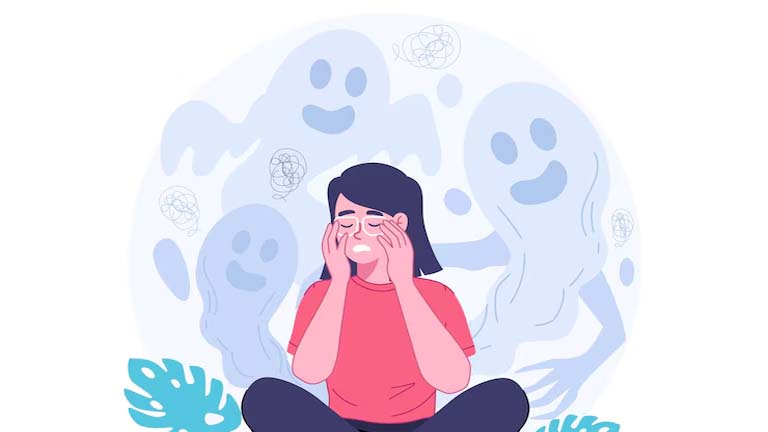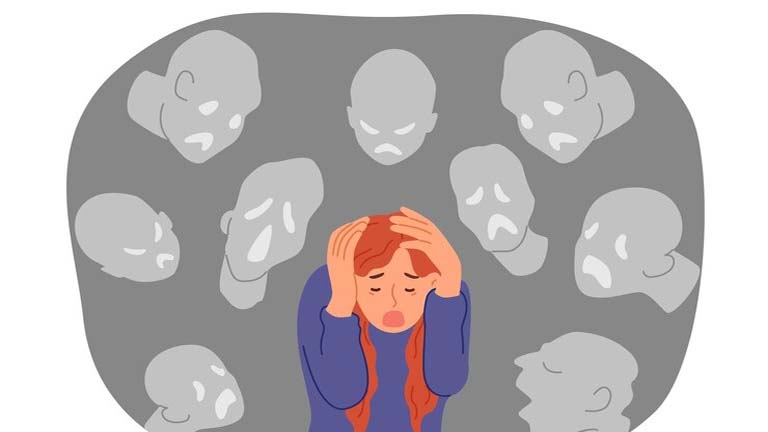Schizophrenia is a complex and chronic mental health disorder that affects how a person thinks, feels, and behaves. Recognizing schizophrenia symptoms early can significantly improve treatment outcomes and quality of life. This article explores the key symptoms, their impact, and when to seek professional help.
Must Check: Mental Health Solution
What Is Schizophrenia?
Schizophrenia is a severe brain disorder characterized by disruptions in thought processes, perceptions, emotional responsiveness, and social interactions. It affects approximately 1% of the global population and typically emerges in late adolescence or early adulthood.
Early Warning Signs of Schizophrenia
Before full-blown symptoms appear, individuals may exhibit early warning signs, including:
-
Social withdrawal – Avoiding friends and family
-
Decline in academic or work performance
-
Unusual behavior or speech – Difficulty concentrating or expressing thoughts
-
Suspiciousness or paranoia – Feeling watched or persecuted
-
Neglect of personal hygiene
Early intervention can help manage symptoms before they worsen.
Positive Symptoms of Schizophrenia
“Positive” symptoms refer to behaviors or experiences added to a person’s normal functioning. These include:
1. Hallucinations
-
Hearing voices (auditory hallucinations) is the most common symptom.
-
Seeing, feeling, or smelling things that aren’t there.
2. Delusions
-
Paranoid delusions – Believing others are plotting against them.
-
Grandiose delusions – Thinking they have special powers.
-
Referential delusions – Believing random events are directed at them.
3. Disorganized Thinking & Speech
-
Incoherent or illogical speech.
-
Rapidly shifting topics (derailment).
-
Made-up words (neologisms).
4. Movement Disorders
-
Repetitive motions (catatonia).
-
Agitation or unusual postures.
Negative Symptoms of Schizophrenia
“Negative” symptoms involve a loss of normal functioning, making them harder to recognize. These include:
1. Reduced Emotional Expression (Flat Affect)
-
Monotonous speech.
-
Limited facial expressions.
2. Lack of Motivation (Avolition)
-
Difficulty starting or completing tasks.
-
Neglecting daily responsibilities.
3. Social Withdrawal
-
Avoiding interactions with others.
-
Loss of interest in hobbies.
4. Anhedonia
-
Inability to experience pleasure.
-
Reduced interest in activities once enjoyed.
Cognitive Symptoms of Schizophrenia
These affect memory, attention, and decision-making:
-
Poor executive functioning – Difficulty planning or organizing.
-
Memory problems – Trouble recalling information.
-
Attention deficits – Easily distracted.
Mood-Related Symptoms
Many individuals with schizophrenia also experience:
-
Depression
-
Anxiety
-
Mood swings
Causes and Risk Factors
While the exact cause is unknown, several factors contribute:
1. Genetic Factors
-
Family history increases risk.
2. Brain Chemistry & Structure
-
Imbalances in dopamine and glutamate.
-
Abnormal brain development.
3. Environmental Triggers
-
Childhood trauma.
-
Viral infections during pregnancy.
-
Substance abuse (especially cannabis in teens).
Diagnosing Schizophrenia Schizophrenia Symptoms
A psychiatrist evaluates:
-
Symptoms (lasting at least 6 months).
-
Medical history.
-
Brain imaging (to rule out other conditions).
Treatment Options
1. Antipsychotic Medications
-
First-generation (typical) antipsychotics – Haloperidol, Chlorpromazine.
-
Second-generation (atypical) antipsychotics – Risperidone, Olanzapine.
2. Psychotherapy
-
Cognitive Behavioral Therapy (CBT) – Helps manage delusions.
-
Family therapy – Educates loved ones on support strategies.
3. Social & Vocational Training
-
Improves independent living skills.
-
Helps with job placement.
4. Hospitalization (In Severe Cases)
-
Needed during psychotic episodes for safety.
Living with Schizophrenia: Coping Strategies
-
Stick to treatment plans – Medications and therapy are essential.
-
Join support groups – Reduces isolation.
-
Avoid drugs and alcohol – Worsens symptoms.
-
Maintain a routine – Helps with stability.
When to Seek Help
If you or a loved one shows:
-
Severe hallucinations or delusions.
-
Suicidal thoughts.
-
Inability to care for oneself.
Seek immediate medical attention.
Schizophrenia Symptoms Overview Table
| Symptom Type | Key Characteristics | Examples |
|---|---|---|
| Positive Symptoms | Added behaviors/experiences not seen in healthy individuals | Hallucinations, delusions, disorganized speech, agitation |
| Negative Symptoms | Loss of normal functioning | Flat affect, social withdrawal, lack of motivation (avolition), anhedonia |
| Cognitive Symptoms | Impairments in thinking and memory | Poor focus, memory lapses, difficulty problem-solving |
| Mood Symptoms | Emotional disturbances | Depression, anxiety, mood swings |
| Early Warning Signs | Subtle changes before full onset | Social isolation, odd beliefs, neglect of hygiene |
Conclusion
Understanding schizophrenia symptoms is crucial for early intervention and effective treatment. While schizophrenia is a lifelong condition, proper management can lead to a fulfilling life. If you suspect someone is struggling, encourage them to seek professional help.
Would you like more details on any specific aspect of schizophrenia? Let us know in the comments!
FAQs
1. Can schizophrenia be cured?
-
No, but symptoms can be managed with treatment.
2. What’s the difference between schizophrenia and bipolar disorder?
-
Schizophrenia involves psychosis, while bipolar disorder features extreme mood swings.
3. Are people with schizophrenia dangerous?
-
Most are not violent but may act unpredictably during episodes.
4. Can children develop schizophrenia?
-
Rare, but early-onset cases can occur in teens.
5. How can family members help?
-
Educate themselves, offer emotional support, and encourage treatment adherence.


